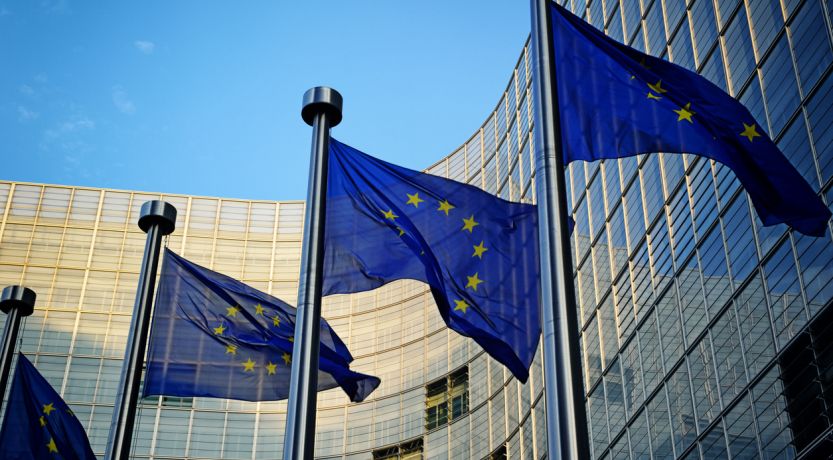Europe: Looking for a Savior?
As the EU continues to face serious challenges, some see the need for a strong leader to step up to save their vision of a united Europe. Will a European savior arise?

The European Union (EU) is desperate for strong leadership. Several pressures are mounting on the EU, and there is a growing sense in Europe that new leadership is needed to solve these problems and lead the European project forward.
Consider some of the crises and challenges that have threatened to tear the union apart over the last few years.
- Brexit. Losing the United Kingdom, a nation with the second or third largest economy in Europe, is shaking the EU.
- Loss of confidence in the United States. The present U.S. administration has challenged Europe’s willingness to pay its full NATO dues, Germany’s trading surplus and the European-led efforts to address climate change.
- The euro crisis. Member states that are taking on too much debt and not obeying budget rules have caused taxpayers in the larger, more financially stable countries to take on greater financial burdens.
- Russia. The former superpower is exerting its influence in Eastern Europe and in the Middle East.
- The migrant crisis. The influx of economic migrants has polarized much of Europe and led to the rise of far-right, nationalist political groups.
- Angela Merkel’s farewell. The long-serving German chancellor, a “symbol of steadiness and continuity,” will not run again in 2021, creating uncertainty in Germany and Europe.
- Continued calls to build a European army. Germany, Europe’s strongest power, is still reluctant to take the mantle of military leadership due to its stigma from the last two world wars.
Germany is at the center of many of these issues and has been a driving force to keep the EU together through many of these crises. Many wonder what a post-Merkel Germany and Europe will look like.
After experiencing so many crises, it is not surprising that two-thirds of Europeans feel the world is getting worse. What does the Bible say about Europe’s future?
Future kingdoms
The book of Daniel records a dream God gave to King Nebuchadnezzar of Babylon that revealed an overview of a succession of world empires that would continue all the way to the return of Jesus Christ.
In the dream he saw a statue of a man composed of different metals: a head of gold, arms and chest of silver, belly and thighs of bronze, legs of iron, and feet of iron mixed with clay (Daniel 2:32-33). The prophet Daniel interpreted the dream for the king.
The book of Daniel, and history, identifies these kingdoms as follows:
- Babylonian Empire: Daniel said Nebuchadnezzar’s empire was the first kingdom of gold (Daniel 2:38).
- Medo-Persian Empire: Babylon was conquered by the Medo-Persian Empire (verse 39).
- Greco-Macedonian Empire: Alexander the Great was the one prophesied to conquer the Medo-Persian Empire (Daniel 8:5-7, 20-21). After Alexander’s sudden death, the Greek kingdom split into four smaller kingdoms (verse 22).
- Roman Empire: After the Greco-Macedonian Empire, the Roman Empire emerged and conquered much of Europe, the Middle East and North Africa. In A.D. 330 the Roman Empire split into two—represented by the two legs of the statue. The empire would eventually collapse and fragment into smaller states and tribal factions, but its powerful presence would periodically revive.
To learn more details about this prophecy, read “Daniel 2: Nebuchadnezzar’s Dream.”
Partly strong, partly weak
The Roman Empire collapsed in A.D. 476, but the interpretation of the dream of the prophetic statue revealed that there would be a revival of the Roman Empire during the time immediately before Christ’s return (Daniel 2:42-44).
Daniel 7 reveals Rome as a “beast” with “ten horns” (verse 7), representing 10 revivals of this empire throughout history (verses 20, 24). To date, nine revivals—all centered in Europe–have come and gone.
We are now waiting for the 10th revival to arise in Europe. It will be one last attempt to unite the nations of Europe into a single force under one charismatic leader.
The European Union is likely the seed of a final revival of the Roman Empire.
That brings us to today. The European Union is likely the seed of a final revival of the Roman Empire. It is very possible that this final revival will emerge out of the present EU or will be a system that emerges to replace it.
The Bible describes this final empire as “iron mixed with ceramic clay” that won’t “adhere to one another” (Daniel 2:41-43). This perhaps indicates that the empire will be a composite of strong and weak nations that have a semblance of unity, but with underlying weaknesses and differences.
Unity has been the greatest hurdle for the European Union to solve as it has tried to form a superstate made up of multiple nations that speak multiple languages and have unique histories and different cultures.
The Bible reveals this hurdle will temporarily be resolved when a strong leader, referred to as “the beast,” will arise and make a united Europe the world’s dominant economic and military power. It is likely this leader will be charismatic and portray himself as a “savior” of Europe (much as Hitler and Mussolini portrayed themselves in the 1930s).
While bringing a temporary prosperity, security and peace, this final leader will eventually cause war and destruction on earth and even try to fight the returning Jesus Christ (Revelation 17:12-14).
Jesus Christ is the true Savior, who will save the world from itself. His Kingdom will end the failed empires of man and usher in world peace!
Photo credit:
iStock.com/symbiot
Date Posted: November 26, 2018



